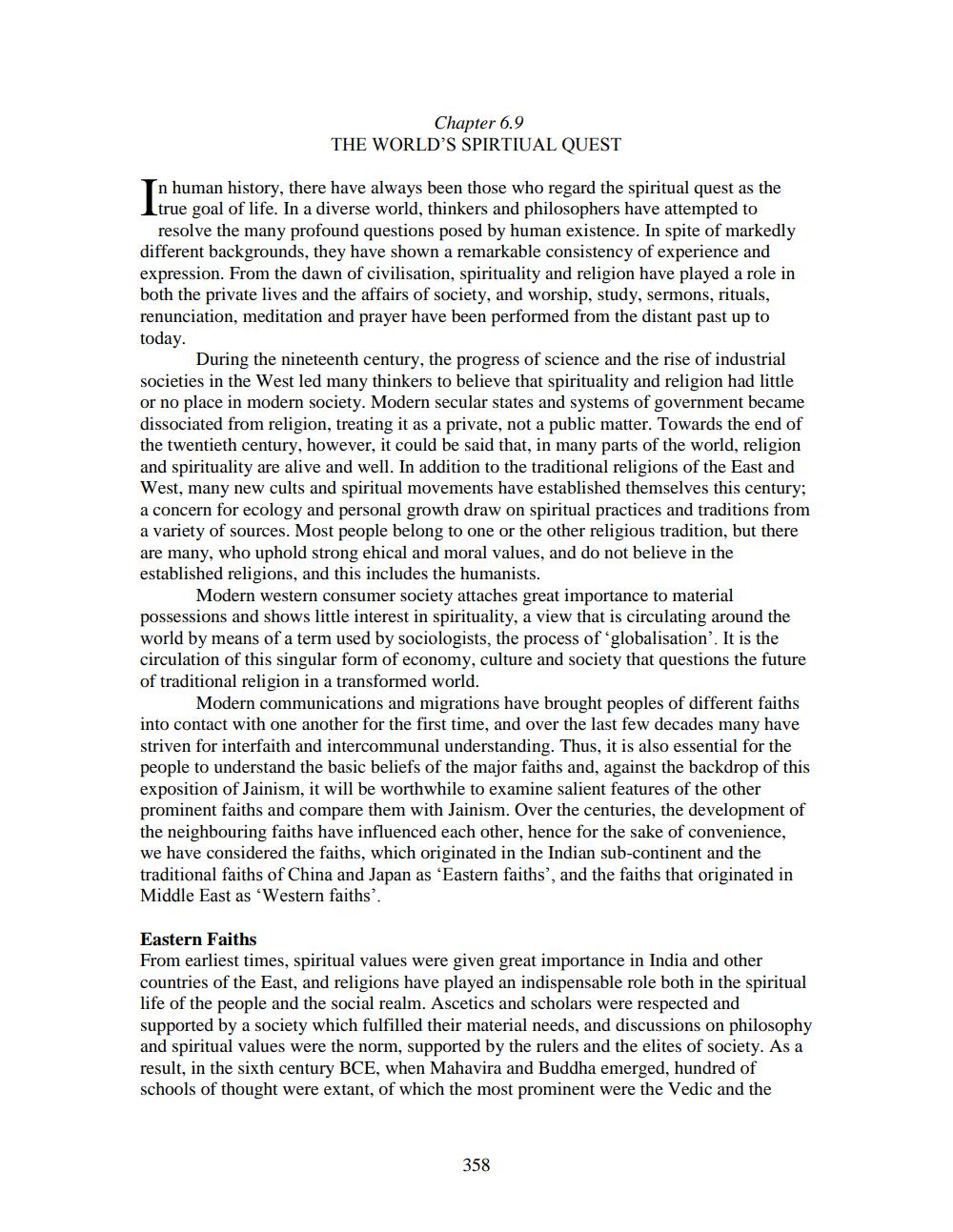________________
Chapter 6.9 THE WORLD'S SPIRTIUAL QUEST
n human history, there have always been those who regard the spiritual quest as the true goal of life. In a diverse world, thinkers and philosophers have attempted to
resolve the many profound questions posed by human existence. In spite of markedly different backgrounds, they have shown a remarkable consistency of experience and expression. From the dawn of civilisation, spirituality and religion have played a role in both the private lives and the affairs of society, and worship, study, sermons, rituals, renunciation, meditation and prayer have been performed from the distant past up to today.
During the nineteenth century, the progress of science and the rise of industrial societies in the West led many thinkers to believe that spirituality and religion had little or no place in modern society. Modern secular states and systems of government became dissociated from religion, treating it as a private, not a public matter. Towards the end of the twentieth century, however, it could be said that, in many parts of the world, religion and spirituality are alive and well. In addition to the traditional religions of the East and West, many new cults and spiritual movements have established themselves this century; a concern for ecology and personal growth draw on spiritual practices and traditions from a variety of sources. Most people belong to one or the other religious tradition, but there are many, who uphold strong ehical and moral values, and do not believe in the established religions, and this includes the humanists.
Modern western consumer society attaches great importance to material possessions and shows little interest in spirituality, a view that is circulating around the world by means of a term used by sociologists, the process of 'globalisation'. It is the circulation of this singular form of economy, culture and society that questions the future of traditional religion in a transformed world.
Modern communications and migrations have brought peoples of different faiths into contact with one another for the first time, and over the last few decades many have striven for interfaith and intercommunal understanding. Thus, it is also essential for the people to understand the basic beliefs of the major faiths and, against the backdrop of this exposition of Jainism, it will be worthwhile to examine salient features of the other prominent faiths and compare them with Jainism. Over the centuries, the development of the neighbouring faiths have influenced each other, hence for the sake of convenience, we have considered the faiths, which originated in the Indian sub-continent and the traditional faiths of China and Japan as 'Eastern faiths, and the faiths that originated in Middle East as 'Western faiths'.
Eastern Faiths From earliest times, spiritual values were given great importance in India and other countries of the East, and religions have played an indispensable role both in the spiritual life of the people and the social realm. Ascetics and scholars were respected and supported by a society which fulfilled their material needs, and discussions on philosophy and spiritual values were the norm, supported by the rulers and the elites of society. As a result, in the sixth century BCE, when Mahavira and Buddha emerged, hundred of schools of thought were extant, of which the most prominent were the Vedic and the
358




